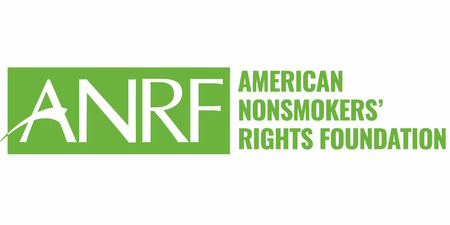Whether on business travel or family vacation, nothing ruins a hotel stay quite like the reek of secondhand smoke in one’s hotel room. It’s more than a nuisance—it’s a health hazard.
Smoking in hotel bars and guest rooms was the norm until the mid-2000s as a result of Big Tobacco’s partnership with the hotel trade association. In August 2023, California is set to join 7 other states (Colorado, Connecticut, Indiana, Michigan, North Dakota, Vermont, and Wisconsin) in requiring all hotels and motels to be 100% non-smoking in guest rooms.
The Dangers of Secondhand Smoke
Secondhand smoke contains thousands of chemicals and dozens of carcinogens. According to the U.S. Surgeon General, there is no risk-free level of exposure to secondhand smoke. The only way to reduce the risks to guests and staff is to eliminate all indoor smoking in a building. Smoking rooms and hotel ventilation systems do not stop the spread of smoke.
The Risk of Thirdhand Smoke
While many are familiar with the concept of secondhand smoke, fewer know about the dangers of thirdhand smoke. This term refers to the toxic chemicals in tobacco smoke that stick to surfaces in a building. This residue is absorbed into drywall, furniture, walls, floors, drapes, clothing, and other materials throughout a hotel. Over time, these residues react with ambient nitrous acid to produce powerful carcinogenic compounds that off gas back into the air. These residues can pose health risks long after the active smoking has stopped and in areas far removed from where smoking occurred.
Marriott’s Positive Step Forward
One of the most commendable health stances in the hospitality industry was taken by Marriott Hotels. The company established a consistent 100% smokefree policy for all their hotels and brands in North America back in 2006.
Read ANRF’s Statement on the 15 Year Anniversary of Marriott’s Decision
This policy decision ensured that workers and guests have a healthy environment while also making it easier to book a smokefree hotel anywhere in the country. This move has been good for health and good for business with benefits such as reduced cleaning costs and fire hazards. For business travelers, having brand-wide smokefree policies made it much easier to plan for non-smoking hotels in other states.
However, there’s a caveat on the horizon.
The Marriott and MGM Partnership: A Step Back?
Marriott’s new partnership with MGM Resorts poses a challenge to the idea of promoting a completely smokefree hotel environment that guests can count on. MGM, unlike Marriott, does not have a comprehensive smokefree policy for its casino hotel properties. This discrepancy in policies raises concerns, as it seems contradictory for Marriott to promote smokefree lodging while partnering with an entity that doesn’t share this commitment.
Top 5 Reasons Why MGM Resorts Should Adopt a Smokefree Policy
- Guest Health and Safety: With the proven risks of secondhand and thirdhand smoke, it’s essential for the hospitality industry to prioritize the health and safety of its guests.
- Improved Indoor Air Quality: Going smokefree ensures better air quality within the hotel, providing a more pleasant and healthier environment for guests.
- Economic Benefits: Cleaning rooms that have been smoked in can be more costly due to the damage from cigarette burns and the lingering thirdhand smoke and odor. Moreover, a smokefree policy can attract a larger clientele who prefer such environments, thus potentially increasing bookings and loyalty.
- Aligning with Industry Standards: With leading hotel chains adopting smokefree policies, it would be a popular move for MGM to align with hotel industry standards for smokefree air and maintain a competitive edge.
- Public Demand: The vast majority of adults do not smoke and the expectation is that indoor workplaces and public places are smokefree.
More Reading
Smoke travels to non-smoking hotel rooms, study shows (USA Today)






